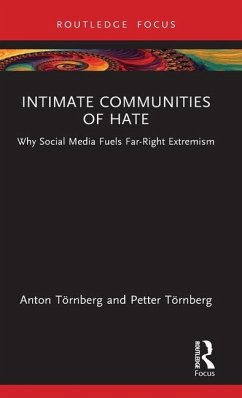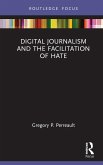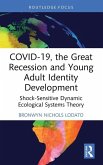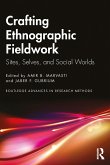Social media has fundamentally transformed political life, driving a surge in far-right extremism. In recent years, radical anti-democratic ideologies have entered into the political mainstream, fueled by energy from extreme online environments. But why do far-right extremist movements seem to thrive so well on social media platforms? What takes place within the fringe online spaces that seem to function as incubators for violent extremists? To answer these questions, this book goes inside the "murder capital of the racist Internet", examining 20 years of conversations on Stormfront.org. Using a combination of computational text analysis and close reading, we seek a deeper understanding of the emotional and social effects of being part of an extremist community. We lay the foundation of a new way of understanding online extremism, building on the tradition of Émile Durkheim and Randall Collins. We find that online radicalization is not merely an effect of repeated one-sided arguments, as suggested by metaphors such as "echo chambers". Instead, social media politics can be better understood through Durkheim's concept of rituals: moments of shared attention and emotion that create emotional energy and a sense of intersubjectivity, weaving from participants a political tribe - united, energized, and poised to act.
"Research on the far right is still rare, and the far right has even more rarely been addressed as a social movement. This engaging and important book, with its systematic analysis of identities, discourses and affects represents a valuable exception and great contribution to this scholarship. This volume not only provide a superb analysis (and analytically sounded) of Stormfront and the use of social media , but also offer insights to the current far right politics landscape and dynamics overall, much deeper than could any electoral result"
- Manuela Caiani, Associate Professor, Political Science at the Scuola Normale Superiore
"This ambitious and pioneering book casts new light on the process of radicalization online. Weaving together insights derived from digital ethnography, social network analysis, and natural language processing, Intimate Communities of Hate, reveals how shared emotions and collective identity power the Stormfront extremist community in the United States. Essential reading for those who are interested in studying extremism, or how to combine cutting-edge qualitative and quantitative techniques to do so."
- Chris Bail, Professor of Sociology, Political Science, and Public Policy at Duke University
"From two of the top experts on far-right extremism, Intimate Communities of Hate: Why Social Media Fuels Far-Right Extremism represents a truly innovative and breakthrough work of research. Its contribution lies in what is the most long-term and detailed analysis of far-right online communities coupled with a cutting-edge and much needed call to reconsider how we think about and explain what has become known as "online radicalization." Intimate Communities of Hate raises the bar for the entire field of extremism and terrorism research showing how an extensive empirical investigation of a single case study can be conducted in a way that employs sophisticated analytic procedures and provides thought provoking and policy relevant theoretical insights. Without a doubt this is a must read!"
- Pete Simi, Associate Professor, Department of Sociology at Chapman University
- Manuela Caiani, Associate Professor, Political Science at the Scuola Normale Superiore
"This ambitious and pioneering book casts new light on the process of radicalization online. Weaving together insights derived from digital ethnography, social network analysis, and natural language processing, Intimate Communities of Hate, reveals how shared emotions and collective identity power the Stormfront extremist community in the United States. Essential reading for those who are interested in studying extremism, or how to combine cutting-edge qualitative and quantitative techniques to do so."
- Chris Bail, Professor of Sociology, Political Science, and Public Policy at Duke University
"From two of the top experts on far-right extremism, Intimate Communities of Hate: Why Social Media Fuels Far-Right Extremism represents a truly innovative and breakthrough work of research. Its contribution lies in what is the most long-term and detailed analysis of far-right online communities coupled with a cutting-edge and much needed call to reconsider how we think about and explain what has become known as "online radicalization." Intimate Communities of Hate raises the bar for the entire field of extremism and terrorism research showing how an extensive empirical investigation of a single case study can be conducted in a way that employs sophisticated analytic procedures and provides thought provoking and policy relevant theoretical insights. Without a doubt this is a must read!"
- Pete Simi, Associate Professor, Department of Sociology at Chapman University








